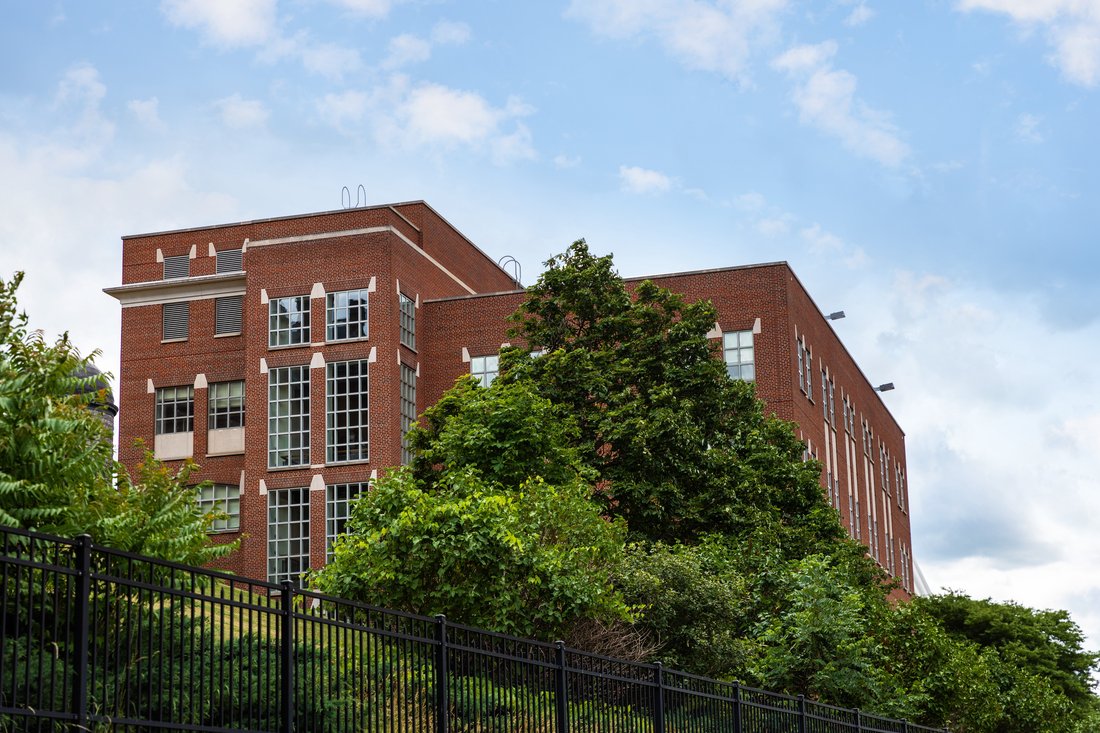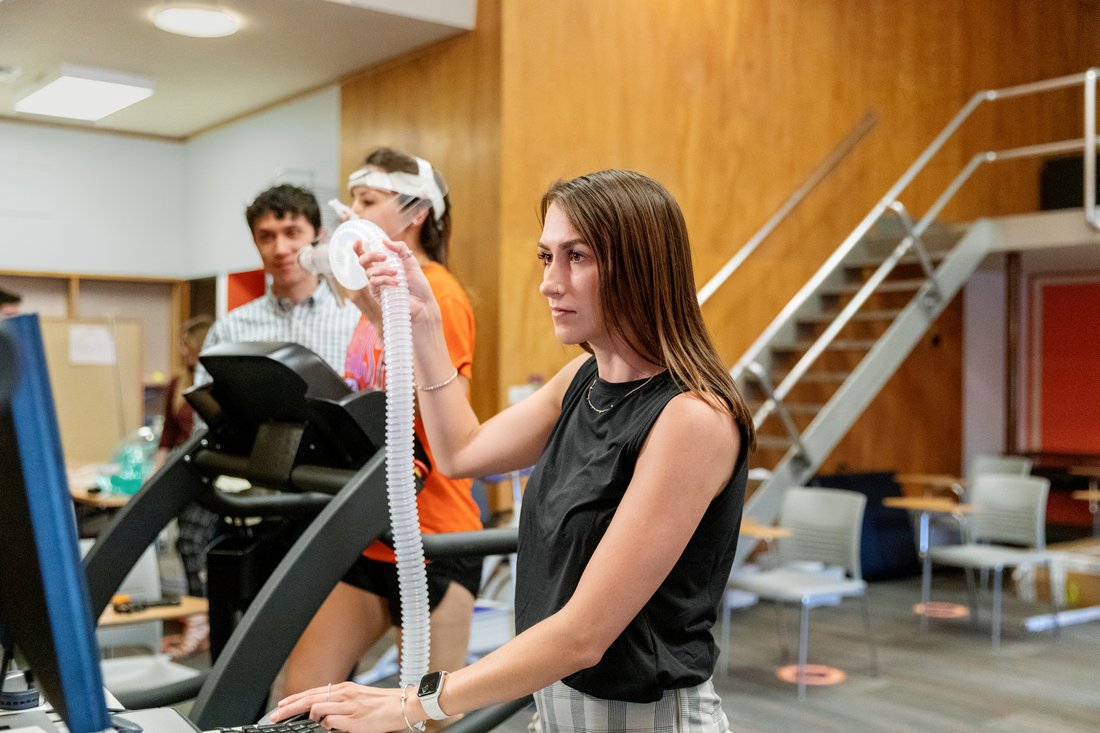
David B. Falk College of Sport and Human Dynamics
Curriculum
Core coursework emphasizes anatomy and physiology, human behavior, and personal health. Sample courses include:
- Sport Psychology
- Nutrition in Health
- Analysis of Human Motion
- Physiology of Exercise
- Scientific Principles of Conditioning
- Prevention and Care of Athletic Injury
Bring your knowledge into the field for an immersive 270-hour internship experience at major area hospitals, private practices, or college and professional athletic teams. There’s no shortage of options in Syracuse, including three major hospitals within walking distance of campus, local private practice settings, research projects with faculty, and Syracuse University Athletics.
Select the degree track that best meets your goals:
- General Health and Exercise Science: Prepare for careers in community or corporate fitness, clinical physiology, medicine, sports medicine, research, public health, and clinical health professions.
- Pre-Physical Therapy: Prepare for graduate study in physical therapy or related areas.
- 3+3 DPT program with SUNY Upstate Medical University: Earn a B.S. in exercise science and a doctorate of physical therapy (DPT) in 6 years instead of the usual 7.
Join faculty-mentored research projects and contribute to the next scientific breakthrough. Collect and analyze data. Publish as an author or co-author on scholarly articles. Present your findings at conferences.
It all starts in our dedicated on-campus exercise science labs:
- Cardiovascular Laboratory: Assess cardiovascular structure and function to explore the impact of exercise on emerging markers of cardiovascular disease risk.
- Kinesmetrics Laboratory: Apply objective measurement tools to understand physical behaviors’ (sleep, sedentary behavior and physical activity) consequences on health.
- Clinical Research Laboratory: Measure cardio-metabolic risk factors—such as insulin resistance, metabolic syndrome, and type 2 diabetes—and the effects of exercise in obese populations.
- The Hypoxia/Altitude Simulation Laboratory: Assess the role of low oxygen (hypoxia) on human physical performance using a high-altitude simulation chamber.
Extracurricular Opportunities
Get Involved on Campus
Syracuse University is home to more than 300 extracurricular groups, so you’ll never run out of ways to live and learn. Here are a few ideas to get you started:
- The Exercise Science Club student organization gives you professional networking and leadership opportunities, all while meeting people who share your interests in wellness, health, and exercise.
- First-year exercise science majors can live together, share first-semester courses, and explore career interests through guest speakers, lab demonstrations, and site visits through the Health and Exercise Science Learning Community.
- Join recreation activities from sports clubs to intramural teams in expansive facilities, including the Barnes Center at the Arch.
Experience Exercise Science Across the World
Consistently ranked among the top 25 international education providers in the U.S., Syracuse University Abroad gives you short- and long-term options—over 100 programs in 60 countries, from internships, community engagement projects, and language study at all levels. For example:
- Take a 3-week research and teaching expedition to the foot of the highest mountain on Earth, Mount Everest in Nepal, where you’ll learn how the human body responds to high altitude.
- Take a 3-week course to Peru in South America and visit Cusco and Machu Picchu, where you'll learn about highland native populations and how the human body responds to high altitude.
- Collaborate with local community partners in Grahamstown, South Africa, to implement and evaluate a mutually-designed health education program.
Choose Your Career Path in Exercise Science
Some graduates choose to pursue a doctorate of physical therapy (DPT) program or another clinical health program. Other graduates are top candidates for advanced study in training and coaching, including certifications offered by the American College of Sports Medicine and the National Strength and Conditioning Association.
Learn more about this program

